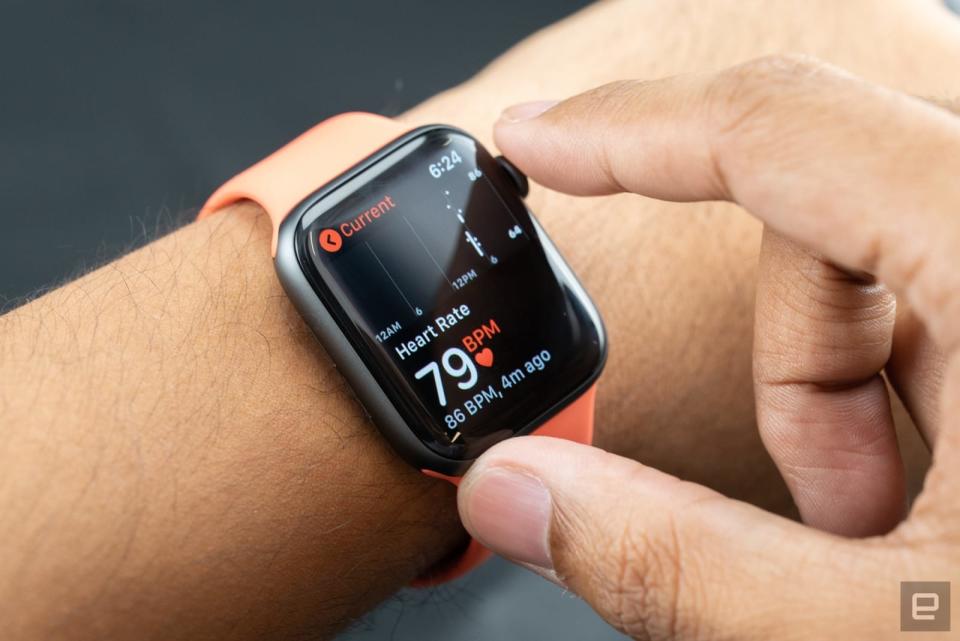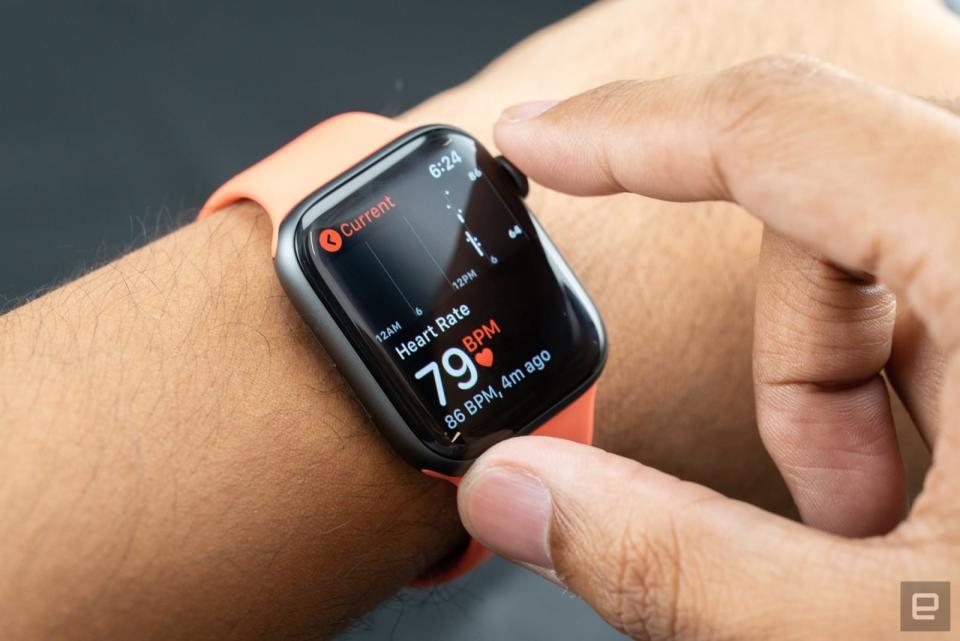New York doctor sues Apple over irregular heartbeat detection
He claims the Apple Watch is using his technique.
The heart monitoring technology inside the Apple Watch may be useful for scientific studies and even saving lives, but one doctor believes it's also straight-up theft. New York University cardiologist Dr. Joseph Wiesel has sued Apple over allegations the Watch violates a patented method for detecting atrial fibrillation. Wiesel claimed that he shared details of the patent with Apple in September 2017, but that the company "refused to negotiate in good faith" and left him no choice but to file a lawsuit.
The doctor hopes to block Apple from using the atrial fibrillation detection method without paying royalties. We've asked Apple for comment, although it doesn't typically comment on lawsuits.
Apple is no stranger to patent lawsuits, although those frequently come from trolls that either didn't develop a given piece of technology or have no intention of putting it into a real product. This is different -- Wiesel is clearly the inventor. Still, he may face a challenging court battle. He'll have to show that Apple's technique is highly similar, and not just vaguely familiar-looking.

 Yahoo Finance
Yahoo Finance 

